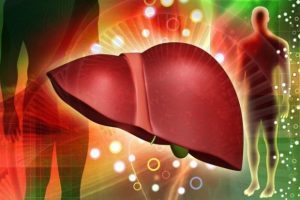Not losing weight despite your best efforts? You may be missing utilising these important weight loss strategies.
1) Adrenal depletion / Chronic stress
Stress at work and/or at home, long working hours, poor diet, lack of exercise and sleep cause chronic stress resulting in feeling fatigued and lethargic even when at rest. Cortisol, the stress hormone produced by the adrenals, regulates blood sugar levels and thus contributes directly to weight gain when it’s out of balance.
It works with insulin to keep the blood sugar stable to prevent cravings, overeating and mood fluctuations. Importantly, when cortisol is out of balance the body will store body fat rather than burn it for fuel i.e. the normal fat burning mechanism is severely impaired or broken.
Cortisol levels first rise when we are stressed and go back to normal when the stress is gone, but if stress continues without enough rest and recovery, the adrenal glands become exhausted and are unable to produce enough cortisol and subsequently its level drops.
This has a major impact on metabolism slowing it down and resulting in weight gain accompanied by fatigue, anxiety and depression, among others.
- Signs and symptoms – low energy levels ( especially in the morning), constant fatigue, brain fog, irritability, short temper, sleep problems, muscle and/or joint stiffness and pain, lower back pain, hormonal imbalances in both men and women, decreased immune function leading to frequent illness, various digestive symptoms.
- Solutions – it takes time to heal exhausted adrenals depending on the level of depletion. Embark on a comprehensive adrenal restoration process involving tailored supplementation which is vital for recovery, nutrition improvements and lifestyle adjustments, especially stress management activities.
- The Kalish Method is an effective adrenal recovery program that is based on lab tests results, tailored supplementation (including adaptogenic herbs) plus diet and lifestyle modifications. Get in touch to discuss how this method could help with improving fatigue and stress overload.
2) Clogged liver
The liver plays a central role in the metabolism of all foods, it also is the body’s major detox centre, it produces bile which is essential for fat digestion, balances sugar levels, and most importantly for weight loss, it converts fat into energy.

When we put on weight quickly, the fat can’t be stored in the fat tissue fast enough and part of it goes to the liver as a backup location for storage.
As a result the liver gets clogged with excess fat and can’t work properly – that’s when fatty liver develops. When the liver can’t keep up with the workload, metabolism slows down and weight loss stops.
Having a fatty liver doesn’t only affect weight loss, detox and digestion, it also increases the risk for type 2 diabetes by 500% (1).
- Signs and symptoms – elevated liver enzymes on blood test, headaches especially behind the eyes, poor digestion – excessive gas and bloating, eating fatty foods cause indigestion or nausea, skin rashes and itchiness, coated tongue, sensitivity to perfume or household cleaners and a yellow skin tone.
- Solutions – eat whole organic foods to decrease pesticide levels, supplement with liver-helping herbs such as St Mary’s thistle, globe artichoke or dandelion root (seek professional help before using herbs in any form) and include lipotropic nutrients such as choline, lecithin and inositol, reduce or eliminate alcohol.
- Eat good quality protein daily, when you don’t eat protein (e.g. during a juice fast) your liver actually slows down and your metabolism and detoxification function are impaired even further. Including whey protein in smoothies and snacks is a quick and effective option for busy people to make sure they have enough protein daily.
3) Accumulation of plastics, pesticides and chemicals in body tissues
The body’s detoxification system (including the gut, liver, kidneys, lungs and skin) constantly remove harmful chemicals generated by the normal body functions, as well as toxins acquired from the environment such as any chemicals, pesticides and herbicides, plastics (such as PCBs) plus other pollutants we are exposed to in the air and water.
We accumulate more and more toxins as we get older. Many of the toxins are fat soluble and they mostly accumulate in our fat cells, especially around the abdomen. Therefore managing the body’s detoxification systems is a key factor controlling how successful we are at losing weight and whether or not we reach and maintain our goal weight.
The pesticides, chemicals and PCBs accumulate in the food chain in fish, animals and the milk they produce which are then consumed by us. Toxin excess is a common reason for weight gain in people whose detoxification systems are compromised.
When we start losing weight, toxic compounds are released from stored fat and start circulating in the blood affecting functions of a number of organs including adrenals, thyroid, the liver, endocrine and nervous systems, to name a few.
This increased concentration of toxic pollutants is a side effect of weight loss and a risk for developing many health problems leading to tissue damage (2). The more weight we lose the more exposure we get. If detox process is impaired and the toxins are not able to be excreted, they are re-directed back to the fat stores to protect the body.
Often new fat cells are created to accommodate the toxins which means weight gain continues. This can become a vicious cycle hard to break for many individuals.
Some people are just too toxic with their detox systems clogged as they embark upon weight loss. As stated above, under such circumstances losing weight is very difficult and such individuals need to start out not only by improving their diet and doing moderate exercise, but also by repairing their detoxification capacities.
If such individuals embark on any of the quick and crude over the counter weight loss systems or other quick-fixes found on the internet, they further damage the already compromised detox systems by flooding them with toxins which include the often inappropriate and low quality supplements that are part of those methods.
The results are often disastrous and could put the person in danger of damaging their organs and metabolism for a long-time. Unfortunately, I see many such patients in the clinic.
- Signs and symptoms – chronic unexplained anxiety and nervousness, brain fog and memory problems, insomnia, chemical sensitivity (e.g. to perfumes or cleaners), hormonal imbalances manifesting as PMS, fibroids, endometriosis, infertility and PCOS.
- For example too much estrogen makes women feel bloated, fatigued, irritable and crave sugar thus putting on weight. Gut symptoms are also very common including food allergies and intolerances, bloating, leaky gut, constipation, liver damage, and others. Importantly, many vegetarians who eat insufficient protein are at risk of detox problems and toxicity.
- Solutions – switch to organic food as much as possible, avoid all chemical sprays and commercial household cleaning products, use organic cosmetics, shampoos and body lotions. Embark on a supervised, 4-6 week detoxification program at least twice a year (beginning of spring and autumn are good times) when you can slowly and safely excrete the toxins over time.
Let us know your thoughts by adding a comment below, but please remember, I can’t offer personal medical advice online. So be sure you focus on sharing your health journey, valuable tips and what you’ve experienced and learnt so far losing weight.
If you’d like to contact me directly click here.
Best of Health
Joanna Sochan
Wholistic Health and Lifestyle Therapist
Natural and Lifestyle Solutions for Abundant Health & Wellbeing
References
1) Jeffrey D. Browning, Brian Weis, Jeannie Davis, Santhosh Satapati, Matthew Merritt, Craig R. Malloy, Shawn C. Burgess. Alterations in hepatic glucose and energy metabolism as a result of calorie and carbohydrate restriction† Hepatology 2008 November
2) Hue O, Marcotte J, Berrigan F, Simoneau M, Doré J, Marceau P, Marceau S, Tremblay A, Teasdale N. Increased plasma levels of toxic pollutants accompanying weight loss induced by hypocaloric diet or by bariatric surgery. Obes Surg. 2006 September 16(9):1145-54. Department of Social and Preventive Medicine, Laval University, Québec, Canada.
3) Wellness Resources www.wellnessresources.com
Photo source: Pixabay
Additional resources
- Weight loss and food sensitivities: Karen’s story
- Bee pollen for weight loss – a great but totally overlooked strategy!
- Secretory immunoglobulin A (sIgA) for healthy gut, digestion and immunity
- Holy basil – a key herb for stress, anxiety, depression and fatigue
- Gallbladder function: problems, symptoms and natural treatment
- Sleep and weight loss connection
Disclaimer: The above material is for informational and/or educational purposes only. It should not be used to self-diagnose and it is not a substitute for a medical advice, diagnosis, treatment, prescription or recommendation. All viewers of this content, especially those taking prescription or over-the-counter medications, should not make any changes in their health regimen or diet before first consulting a doctor or other qualified health provider with any questions they may have regarding a medical condition or their particular circumstances.

Joanna Sochan is a Natural Therapist and founder of Naturimedica Holistic Health & Wellness. She has a passion for helping her clients transform their lives by becoming healthy and well naturally. Joanna has 15+ years experience in clinical practice and has special interest in solving complex cases, functional medicine, gut health, hormone imbalances and weight loss. Joanna guides her clients through her programs and eCourses as well as helping clients individually, mostly online, Australia-wide. View full bio.




All this information is very useful but since l hit the menopausal stage now lm have so much changes in my body and not feeling well. I have interuptsleep restless legs chronic pain all over my body. I feel like lm 6 months l gained midsection and alittle all over feel very tired everyday.?just very tired of living this way. Is there a special diet l can follow what do you suggest, thank you so much
Hi Josie
Thank you for your comment. Please read my just published post about the link between weight loss and food sensitivities, which is a clinical case report describing a weight loss journey of one of my clients. I find this method works for many people who also have significant reduction of symptoms.
Here’s the post:https://www.naturimedica.com/weight-loss-and-food-sensitivities-karens-story/
Hi Joanna, 1st at all congrats for the blog, it’s awesome! I have a doubt that I can’t find the asnswer of. My cortisol Salvia results show that my cortisol is very high the whole day and my DHEA low. I like to workout (strength training) and I read that working out empty stomach makes the cortisol higher. Instead, having carbs before going to gym helps to control the cortisol when working out. Is that true? If I workout at 6am, would that also work? Thanks in advance :(
Hi Ellie
High cortisol and low DHEA indicate the resistance stage or stage 2 adrenal depletion i.e. an early phases of adrenal exhaustion. The body cannot make enough DHEA to balance cortisol. This is a response to chronic stress. You’ll need a break from whatever that chronic stress may be – insomnia, mental, physical or emotional overload, poor diet or whatever. Failure to correct will lead to exhaustion.
I don’t know your circumstances but suggest you look at your exercise levels and intensity to make sure you’re not overdoing it causing too much stress for the body. And yes, having a snack before a 6am workout will definitely help with calming the cortisol.
You’re welcome!
VERY USEFUL AND INTERESTING
Thank you for your feedback!